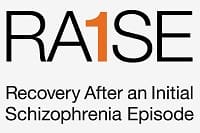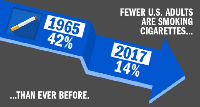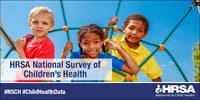
Dec 13 2018
A new NIMH study of activity levels, energy levels, sleep patterns, and mood among people with depression and bipolar disorder indicates that treatments focused on increasing activity and energy levels may be more effective than treatments focused on elevating and stabilizing mood. The study combined real-time activity and sleep tracking data with participant diaries to find that activity levels affect mood, but mood does not affect activity levels – contrary to current theories of depression. For more information about this study, please visit the NIMH website.

Dec 10 2018
The FDA has granted clearance to a prescription cognitive behavioral therapy mobile phone app for people with opioid use disorder (OUD). The reSET-O app acts as a training, monitoring, and reminder tool to support patients and increase the amount of time they participate in an outpatient OUD treatment program, including buprenorphine treatment and traditional behavior therapy. To learn more about the reSET-O app, please visit the FDA website.

Nov 27 2018
New findings from NIMH’s Recovery After an Initial Schizophrenia Episode (RAISE) project show that team-based coordinated specialty care (CSC) for first episode psychosis results in more optimal prescribing of antipsychotics and fewer side effects when compared to typical community care. Earlier studies had shown that CSC for first episode psychosis results in improved outcomes, but this study adds more detail and evidence for CSC as a best practice. For more about CSC, please visit the NIMH website.

Nov 08 2018
An estimated 14% of U.S. adults (34 million) were current cigarette smokers in 2017, the lowest level ever recorded. New data published by the CDC, the FDA, and the National Cancer Institute shows that the number of adults who were current cigarette smokers has declined by 67% since 1965. Adults who experience “serious psychological distress,” however, are still more than twice as likely to use tobacco products compared to adults who do not experience distress. For more information about this study, please visit the CDC website.

Nov 05 2018
The National Institutes of Health has announced more than 200 new funding opportunities totaling over $220 million to support the BRAIN Initiative. This exciting cross-agency effort enables researchers to use the latest scientific tools to understand the neural circuitry of the human brain. BRAIN Initiative discoveries not only help us better understand how brain biology influences behavior, they may help address critical issues like the opioid crisis. For more about the BRAIN Initiative, please visit the NIH website.

Oct 02 2018
This month NIH launches the 2018-2019 All of Us Journey, a traveling educational exhibit. The tour will begin in North Kansas City, MO and visit cities across the southwest to bring education and enrollment resources to communities that have been historically underrepresented in research. Interested people can learn about research and enroll on the spot, including answering surveys and providing measurements and samples. For more about the All of Us Journey, please visit the NIH website.

Oct 01 2018
The Health Resources and Services Administration (HRSA) has released initial data from the 2017 National Survey of Children’s Health, a voluntary survey that provides national- and state-level estimates of key measures of child health and well-being. Findings include that in 2016-2017, 80% of children aged 3-17 who were reported as needing mental health services in the past 12 months received these services. For more information, please visit the HRSA website.

Sep 01 2018
Crisis Intervention Teams can improve the safety and effectiveness of law enforcement response to people experiencing behavioral health crises by using data to inform practice. This SAMHSA guide provides information about building partnerships, identifying metrics, establishing data collection processes, analyzing and reporting data, and expanding organizational capacity. For more information, please visit the SAMHSA website.
NAMI HelpLine is available M-F, 10 a.m. – 10 p.m. ET. Call 800-950-6264,
text “helpline” to 62640, or chat online. In a crisis, call or text 988 (24/7).